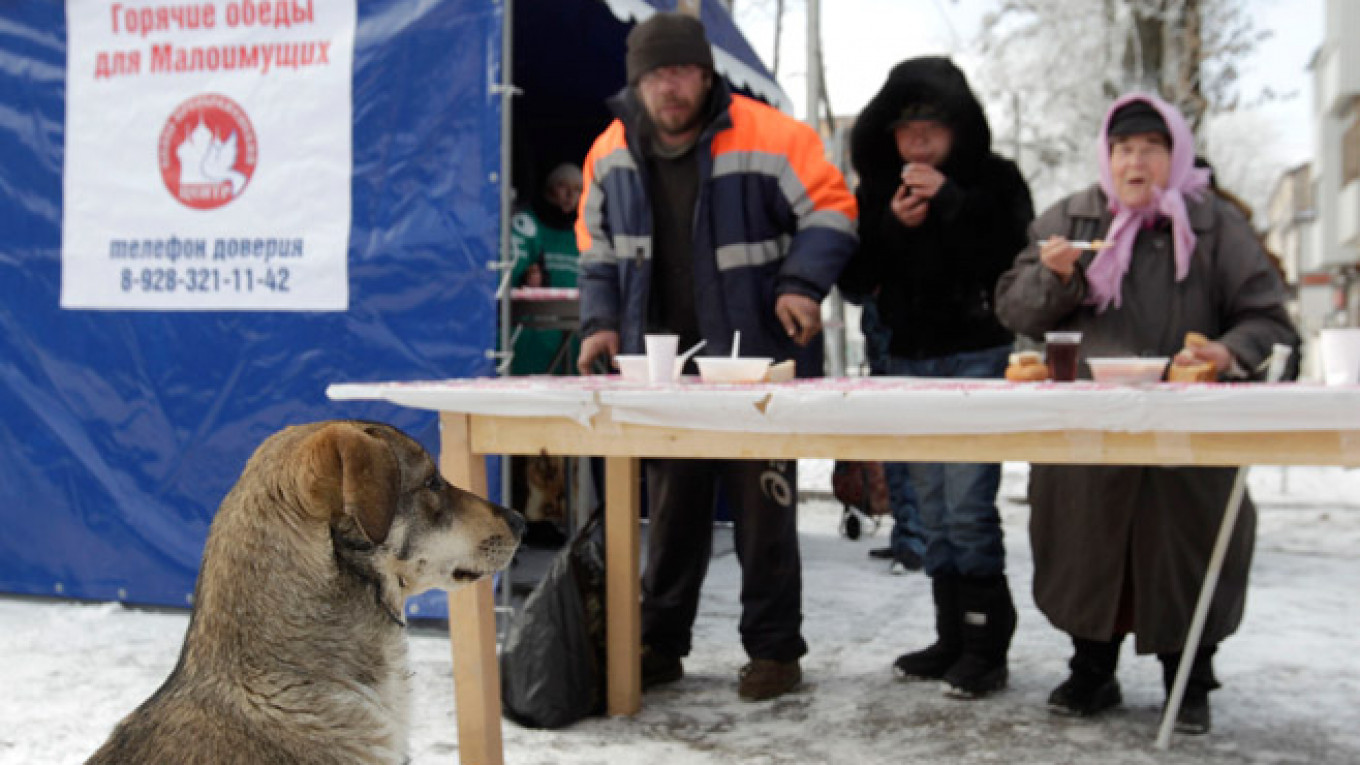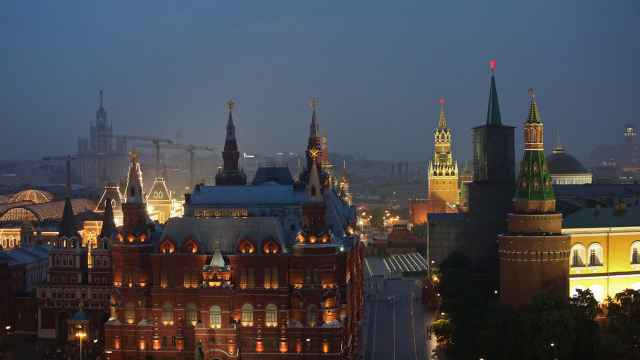Representatives of several Russian charity foundations say they have felt the impact of the falling ruble and the country's economic woes, with a major drop in donations from institutions and vital medical equipment under threat.
In comments to the BBC's Russian service on Thursday, Yekaterina Bermant, director of the "Children's Hearts" foundation, which helps children suffering from heart problems, said the ruble's plunge made it harder for the group to purchase the medical equipment that its work depends on, and to help children get necessary treatment abroad.
The foundation relies on medical supplies purchased overseas in foreign currency, a necessity that is now under threat, she said, adding that treatment for sick children overseas had increased nearly threefold.
Nyuta Federmesser, director of the Vera ("Faith") foundation, which offers assistance to hospice patients, said her group had noticed a major drop in donations from companies and institutions.
"It's not massive, but it's noticeable," Federmesser said in comments carried by charities-focused news site Miloserdie.ru.
Individuals, on the other hand, have actually become more active in donating, she said, attributing the trend to what she described as one peculiar trait of Russians' character: "When things are rotten, they rally together."
The AdVita charity foundation has also witnessed a decline in donations amid the country's economic troubles, director Yelena Gracheva told Miloserdie.ru.
Gracheva said that while the prices on medical equipment and supplies had not yet risen, they inevitably would in the near future.
"We understand that we can't keep the donations from falling: First [donations from] companies will fall, then from individuals. We have an equal number of both. The only way out is to get more contributors," Gracheva told Miloserdie.ru.
Bermant predicted that charities would feel the full weight of the country's economic woes in February, once contributors really start pulling back after waking up to a financial "hangover" in January.
Contact the author at [email protected]
A Message from The Moscow Times:
Dear readers,
We are facing unprecedented challenges. Russia's Prosecutor General's Office has designated The Moscow Times as an "undesirable" organization, criminalizing our work and putting our staff at risk of prosecution. This follows our earlier unjust labeling as a "foreign agent."
These actions are direct attempts to silence independent journalism in Russia. The authorities claim our work "discredits the decisions of the Russian leadership." We see things differently: we strive to provide accurate, unbiased reporting on Russia.
We, the journalists of The Moscow Times, refuse to be silenced. But to continue our work, we need your help.
Your support, no matter how small, makes a world of difference. If you can, please support us monthly starting from just $2. It's quick to set up, and every contribution makes a significant impact.
By supporting The Moscow Times, you're defending open, independent journalism in the face of repression. Thank you for standing with us.
Remind me later.






